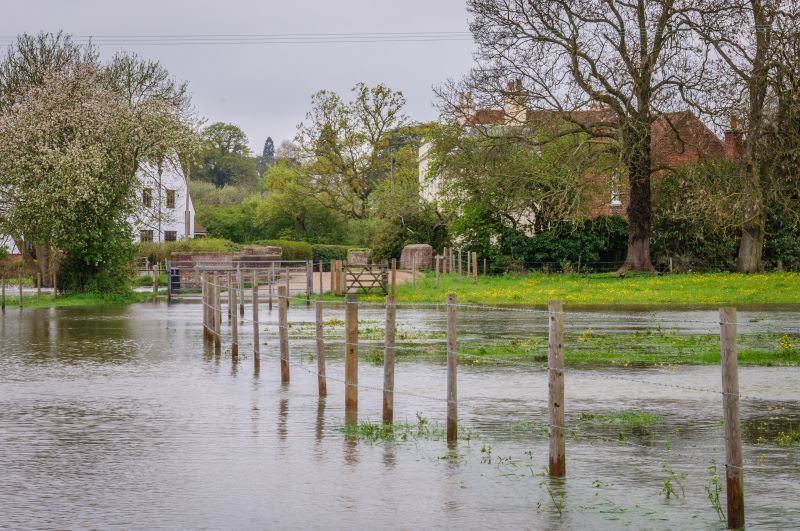The UK Is Unprepared to Deal with Climate Change
- Categories:
- Climate Change

The report warns of more severe heatwaves, especially in big cities, and more intense rainfall, with an increased flood risk across most of the UK.
Worryingly, the CCC has said that the UK is even more unprepared to cope with the effects of climate change than it was five years ago.
They outline the following eight areas we must focus on to ensure we are dealing with the climate crisis.
Biodiversity
The loss of biodiversity in the UK is a real concern when it comes to dealing with climate change. Higher temperatures will likely make habitats unsuitable for certain species, while more frequent and severe weather events, such as wildfires and droughts, may lead to local extinctions.
Actions to mitigate these risks should include reducing human pressure on the environment, considering adaptation in conservation planning, monitoring of pests and diseases, and putting nature-based solutions at the centre of climate action.
Increased flooding risk
The CCC report suggests that rainfall will become heavier as the climate changes, and this puts the health of the UK’s soil at risk.
Suggested actions to mitigate the risk to soil from increased rainfall include investment in soil monitoring programmes, incentivising improvements to soil health for land managers and increasing access to precision farming technology.
Natural carbon stores
The UK has many vital natural carbon stores including peatlands, wetlands and trees. However, the UK’s peatlands are currently at risk, which is dangerous when we need them as vital carbon stores.
They have suggested more targeted actions to restore degraded carbon stores, as well as research to account for climate change risks to carbon stores and a systematic programme of soil carbon monitoring.
Agriculture and farming
The UK’s agriculture and forestry sectors will be vital for ensuring domestic food security and keeping the UK on track for reaching net zero carbon emissions. However, climate change is increasing drought risk, heat stress, waterlogging, flooding, fires, disease and pests, all of which put land and livestock at risk.
The CCC suggest that the government need to take action to introduce different or new varieties of crops, livestock and trees that are more climate resilient, introduce changes to land management including better technologies for managing water and nutrient input, and work on the improvement of soil conservation.
Supply chains
Another risk factor for the UK when it comes to climate change is the effect on our global supply chains for food, goods and vital services. Extreme weather has already been responsible for disruption in recent years and the impact of such climate hazards is only set to increase.
The CCC believe enhancing supply chain resilience must be a priority, and hope that it will be following the COVID-19 pandemic.
Power systems
Electricity will become the dominant power source in the UK as we make moves to reduce our greenhouse gas emissions. However, this does mean that we will become vulnerable to failures in the electricity system caused by climate hazards. Therefore, ensuring that our power infrastructure is resilient is essential.
Heat in buildings
Another major risk of climate change that the UK is unprepared for is excessive heat in our homes and other buildings. People in the UK are at risk of illness and even death from high temperatures, and productivity will be massively impacted.
The CCC have outlined many areas where these issues can be tackled, including updating building regulations to address overheating, regional or local level climate risk assessments, ensuring that designs for new buildings consider future temperatures, and increasing green infrastructure.
Changing climates overseas
Climate hazards that occur globally can have cascading effects here at home, which is why the CCC argue we need to look beyond the UK when working on climate policy. They believe there is an opportunity to learn from the COVID-19 pandemic, which has highlighted the interdependence of our world.
The Climate Change Committee has let it be known loud and clear that the UK government is failing at present when it comes to tackling the key risks that climate change poses. However, they have also made many recommendations for how we need to prioritise action on this, which will hopefully be taken up.
Here at SearchScene, we understand that climate change is already having a devastating impact around the world. This is why we donate 95% of our profits to charities including Oxfam, UNICEF, WaterAid and more.










